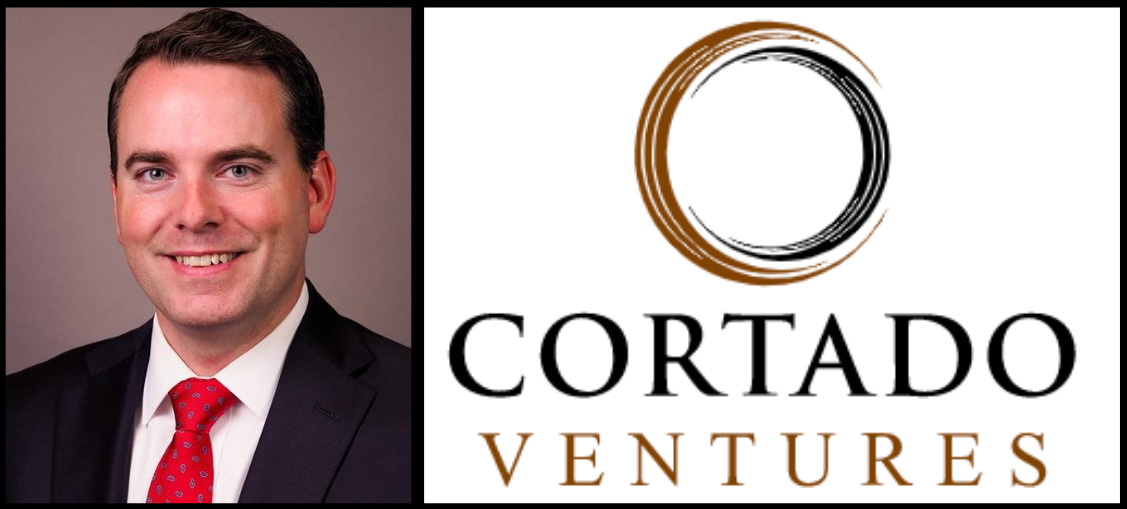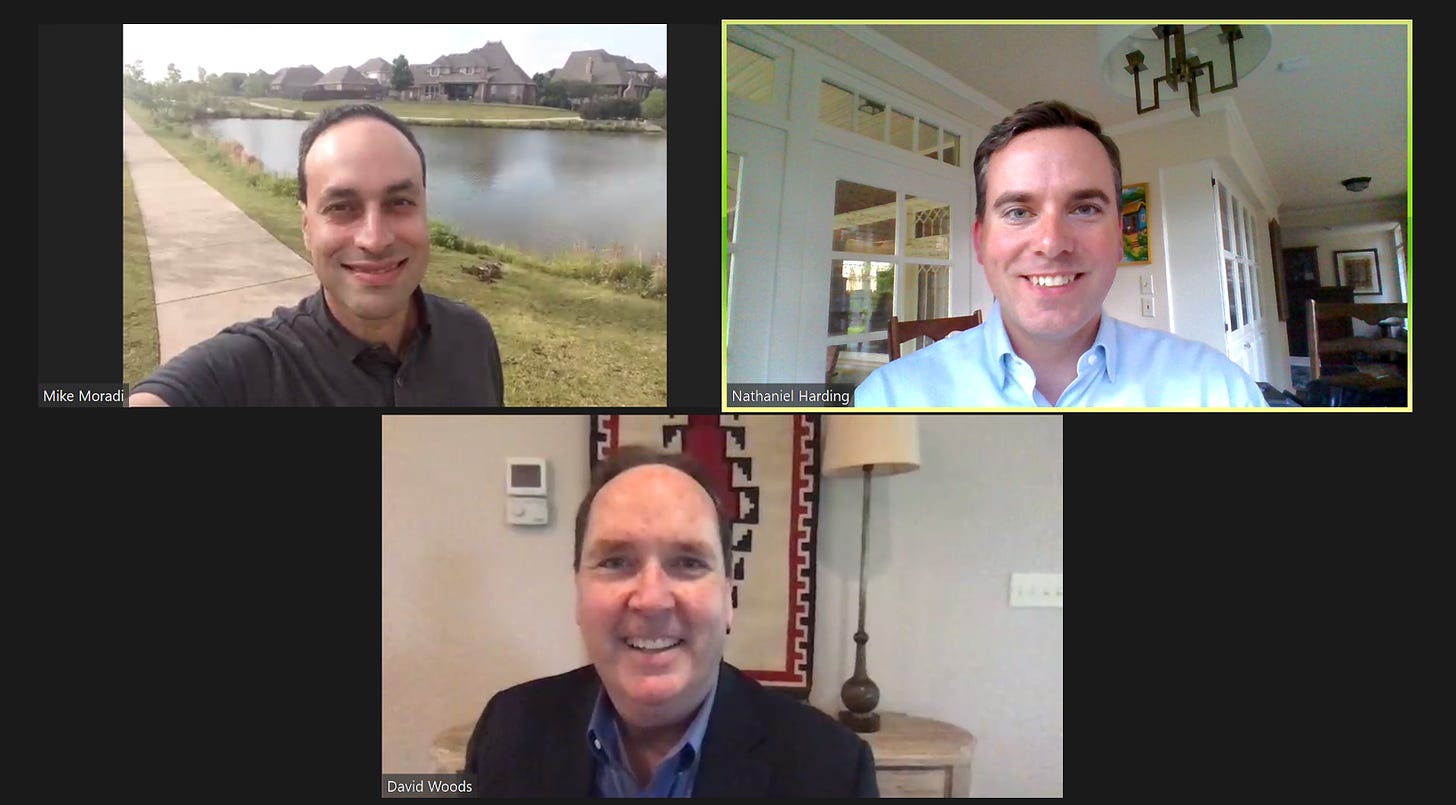Meet the VC Firm Betting on Oklahoma’s Future
Nathaniel Harding, Managing Partner of Oklahoma-based Cortado Ventures, talks through the challenges and opportunities of backing regional startups
What’s The Deal is a free newsletter on all things Venture Capital, Private Equity, Startups, and Financial Markets.
The unthinkable happened to U.S. crude oil futures in April: they fell below $0. At the time, Covid-19 lockdowns were at their apex, causing an unprecedented slump in gasoline demand and delivering a huge blow to the U.S. oil and gas industry, which employs over 10 million people and accounts for 8% of national GDP. Due to the pandemic, oil and gas’s 17.8% unemployment rate is now the second highest across all industries.
Few states have felt that pain as much as Oklahoma, where unemployment in oil and gas hit its lowest level since 2005. The Sooner State’s economy has relied on energy exploration and production for decades – a fact the pandemic has laid bare. Now confronting low oil prices in the near term and mounting political pressure against fossil fuels in the long term, Oklahoma needs to diversify its economy, and fast.
Nathaniel Harding, a 3rd generation oil and gas entrepreneur, is acting on that need with his latest venture: Cortado Ventures, a recently launched Oklahoma-based venture capital firm that invests in Oklahoma and regional technology startups.
Supporting a New Generation of Oklahoma Entrepreneurs
In some ways, Harding’s career embodies his state's past and future. After graduating from the University of Oklahoma and serving in the Air Force, Harding led his family’s oil and gas business to record heights during the fracking boom through technological reinvention and savvy deal-making. Harding’s innovative approach led to the company being acquired in 2014. He then launched a new energy company in partnership with private equity firm TPH Partners.
Now with Cortado, Harding wants to leverage his entrepreneurial and financial acumen to invest in promising Oklahoma technology startups, while also contributing to the diversification of his home state’s economy. At the end of the day, Harding is an Oklahoman who wants to play a role in positioning his state for long-term prosperity.
“Public and private sector leaders in Oklahoma are committed to diversifying the state’s economy beyond legacy industries,” said Harding. “For decades, our political and business leaders have been saying we need to do it. Covid has forced our hand. Now we truly need to act on it.”
Cortado is focused “exclusively on tech and tech enabled companies” with a focus on B2B services, according to Harding. The firm will invest in seed and Series A rounds across a variety of sectors. Cortado has already invested in four companies, including B2B communications provider RespondFlow (which Harding describes as “MailChimp for texting”) and MITO Materials, an innovative composite materials manufacturer. Cortado has not yet disclosed the names of its other two investments.

Nathaniel Harding, Managing Partner, launched Cortado Ventures with the mission of catalyzing his home state’s startup scene.
Riding the tailwinds of technology
For Harding and Cortado, fundraising during the pandemic has been smooth sailing. The firm, which registered in April and set a soft target of $10 million for its first fund, has already hit $13 million, with a new target of $15 million.
“The fundraising environment has actually been good to us,” said Harding. “There’s a general recognition that technology companies are going to be the winners in the post-Covid world, and we benefit from that.”
Cortado has also benefited from the shortage of deployable venture funds in Oklahoma. “There’s a growing recognition in Oklahoma that there’s not enough private capital for the number of startups in the market,” said Harding. “Our goal is to help fill that gap.” Tulsa and Oklahoma City, the state’s two largest cities, featured in real estate firm CBRE’s list of 25 up-and-coming tech talent markets. Zillow’s senior economist identified Oklahoma City as the leading city (along with Kansas City) for startups and technology companies to consider relocating to.
The growth of Oklahoma’s tech scene owes to a variety of public and private initiatives, says Harding. “Different pieces of infrastructure are being built – accelerators, incubators, school programs – that are needed to encourage entrepreneurs and startups to come to Oklahoma. But those businesses need funding.” Indeed, there were only five VC deals totaling $6 million across all Tulsa startups in 2019, as reported by Inc.
Like other non coastal states, Oklahoma stands to benefit from a second order effect of the pandemic: as remote work becomes the new norm, highly skilled workers are abandoning cities like New York and San Francisco, moving to suburbs and/or states where homes and land are less expensive.
“The idea of moving to Oklahoma – where the cost of living is substantially less, and the fact you have dedicated talent here – is really appealing,” said Harding. “The cost of building a business here is a fraction of what it is elsewhere. From rent to complementary business services, everything is cheaper.”
That includes the costs startups shoulder while raising capital. “You can raise a sub $1 million round in Oklahoma, and that’s enough runway for the company to become profitable and have cash flow,” said Harding. “That dynamic is really compelling for us as investors, but also for the founders who experience less equity dilution.”

Harding pictured with fellow Cortado partners, Mike Moradi and David Woods, who are also Oklahoma-based entrepreneurs.
Reaping the benefits of newly “accredited” investors
When the S.E.C. announced last week that it was expanding its definition of Accredited Investor to include investment firm employees and holders of various financial licenses, Cortado immediately felt the effects.
“The day the S.E.C. news came out, we had half a dozen people reach out asking if they could invest in Cortado’s fund,” said Harding. “It’s definitely going to have an impact on the venture capital space, but there’s more clarification needed on what the criteria are.”
The S.E.C. initiative – which is part of the Trump administration’s long-running campaign to open up private equity to more investors– made waves across the investment universe. Some commentators – including burgeoning VC investor Serena Williams – were encouraged by the direction the S.E.C. is taking. Others assailed the agency for not going far enough. Harding falls into the former camp and identified crowdfunding sites as major winners.
“You have platforms like AngelList that syndicate investments in private companies that are going to be the big beneficiaries of this development,” said Harding, who also said the S.E.C. news will “accelerate the trend” of IPOs becoming less popular.
But Cortado’s situation reflects how upstart firms across the country could also be big beneficiaries. In today’s investment landscape, SF- and NY-based leaders in alternative investments have a strong grip on fundraising from large institutional allocators. This dynamic makes it difficult for smaller VC and PE shops to raise significant amounts of capital. As a result, startups in states like Oklahoma are losing out on fundraising opportunities. A study by Facebook and the Brookings Institution found that in 2017, the Heartland states captured just $3.8 billion in VC funding from the total $74.1 billion pie.
By enlarging the investor pool, the S.E.C. can potentially help firms like Cortado tap into their local business networks to raise more money and complete more investments, ultimately spurring economic growth and innovation across America’s undercapitalized regions.
John Hyatt, author of What’s The Deal, is a financial writer and a Marjorie Deane fellow at NYU’s Arthur L. Carter Journalism Institute. Follow him on Twitter, connect with him on LinkedIn, email him at johngilberthyatt@gmail.com, and don’t forget to subscribe to What’s The Deal.



